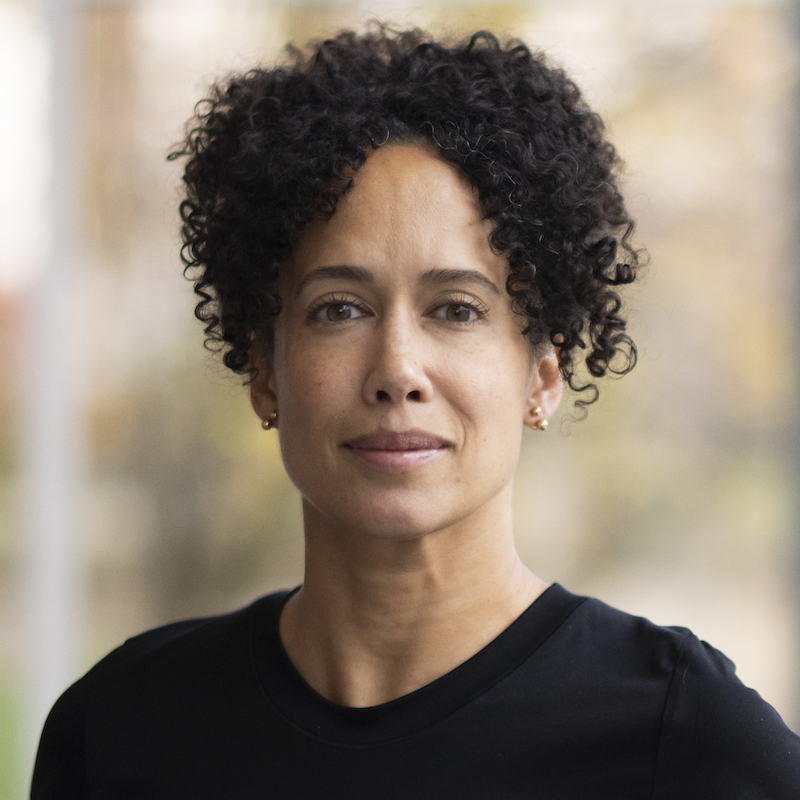Hilary Robinson
Associate Professor of Law and Sociology
Education
Harvard Law School, JD 2006
Massachusetts Institute of Technology, PhD 2017
Bio
Professor Hilary Robinson teaches courses focusing on the way technology influences the law and plays a key role in the law school’s Center for Law, Innovation and Creativity (CLIC). Her current research concerns the interaction between technological change and legal decision-making in the construction of social order, particularly as legal institutions engage in decision-making about technological things and practices. As of 2019, Robinson is the principal investigator on a $1.5 million grant from the National Science Foundation (NSF) titled, “Understanding the Algorithmic Workplace: A Multi-Method Study for Comprehensive Optimization of Platforms.” This three-year research project investigating the digital platform economy includes a multidisciplinary team of scholars at Northeastern University and Boston College with expertise in law, social science and engineering. Together they will develop and test the idea of “comprehensive platform optimization,” where a platform owner is able to optimize for profit and efficiency, government regulators for the public good, and workers for greater income, flexibility and control of workplace conditions. Their aim is to address several problems revealed by earlier research on the platform economy: that many platform companies are not profitable, raising questions about the sustainability of the business model; that workers are low-paid, lack meaningful control over working conditions, and drop out at high rates; and that government authorities have had little success at regulating the underlying business activity that platforms make possible, in turn limiting their ability to constrain negative effects on the public good.
Robinson served as the first vice president of the North Shore Branch of the NAACP, which she helped found in 2020 in response to the murder of George Floyd. Covering 17 towns and cities north of Boston, the branch helped catalyze antiracist activities in a 94 percent white residential area, showing how engaging nonminority communities in active participation the work of racial justice can be done in the 21stcentury.
Her PhD thesis at MIT (2017) examined work in an “algorithmic labor market” by studying Uber drivers in Boston based on semi-random sampling through ride-alongs. In addition to constructing a typology of Uber drivers, she described collective action undertaken by a group of drivers in the form of a “strike against the algorithm,” which was an effort to induce the software to perceive a driver shortage and increase the rate of pay. Offering a new theory of the organizational structure of Uber, she explained how this structure was particularly apt at mobilizing large numbers of people to breach the regulatory system by working as Uber drivers doing the equivalent of taxi or livery work without complying with any of the applicable legal regulations. The US National Science Foundation funded a follow-up comparative study of Uber drivers in Copenhagen, Denmark, which Robinson conducted in 2017.
Prior to joining the Northeastern faculty in 2018, Professor Robinson was a visiting assistant professor in the Science in Society Program at Wesleyan University, where she taught courses including Science and Technology in the Supreme Court’s Current Term and Transnational Comparison of Technology Regulation in the US and Europe. She also spent three years on the faculty at Vermont Law School, where she taught Constitutional Law as well as new seminars she created in Law and “Techno” Privacy, and Agricultural Biotechnology and the Law. She has also taught at MIT as a teaching fellow.
Professor Robinson has previously written about the impact of technology on judicial interpretation of corporate rights, particularly in the Supreme Court’s decisions concerning the regulation of speech during an election, in an article published in the University of Pennsylvania Journal of Law and Social Change (the article won the 2015 James W. Carey Media Research Award). Her other area of scholarly interest concerns the interactions among street-level police practices, DNA databases and legal determinations of criminal culpability. She received an AB, magna cum laude, from Harvard University with a special concentration in genomic science and public policy, and her JD from Harvard Law School, where she was co-chairwoman of the Women’s Law Association and served as the Reginald F. Lewis Fellow for Law Teaching in 2006-2007. She has also worked as a senior policy analyst in the Metropolitan Policy Program of the Brookings Institution in Washington, DC, and as a visiting researcher at Georgetown University Law Center and the Graduate Institute of International and Development Studies in Geneva, Switzerland.
Fields of Expertise
- Law and Technology
- Labor Law
- Science and Technology Studies
- Sociology of Law
- Technology and Society (STS)
Selected Works
-
- “Making a Digital Working Class: Uber Drivers in Boston, 2016-2017,” Dissertation, Massachusetts Institute of Technology. Program in Science, Technology and Society.
- “Shifted Personhood: Corporations, Technology, and Law on the Path to Citizens United and Current Electoral Politics in the United States,” 18 University of Pennsylvania Journal of Law and Social Change 403 (2016) (Winner of the 2015 James W. Carey Media Research Award).
- “Global Governance of Technology: Meeting the Needs of Developing Countries,” 22 International Journal of Technology Management 629 (2001) (co-author).
- “Questions of Rejected Motherhood: Male Creation, Ambition, and Solitude in Mary Shelly’s Frankenstein,” Exposé (2000). Winner of the 2000 Richard C. Marius Prize for Expository Writing.
-
- “Legal Advocates, Officials Reflect on Efforts to Fix Systemic Racism,” Salem News (May 26, 2021).
- Video: “Understanding Flag Protest: From Black Lives Matter to the Thin Blue Line,”
Hamilton-Wenham Human Rights Coalition (May 25, 2021).
- “Professor Looking for Wallet Thief with Hopes of Helping,” Gloucester Times (May 24, 2021).
- “She Wants to Build a Sense of Campus Community for Black Women,” News@Northeastern (March 8, 2021).
- “‘Good Trouble’ Came to Northeastern on Martin Luther King Jr. Day,” News@Northeastern (January 19, 2021).
- “The Boeing Crashes And Managing Algorithms So They Don't Manage Us,” Cognoscenti (March 27, 2019).
Hilary Robinson
Associate Professor of Law and Sociology
